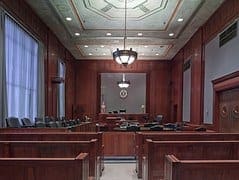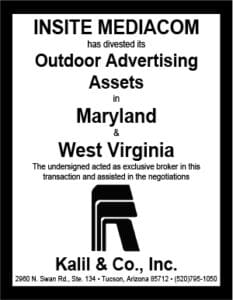 Make sure you understand exactly who owns what rights before you put a billboard on tribal land. That’s the lesson of United States v. Osage Wind, LLC. The dispute involves a wind farm but has implications for billboards. Here are the facts.
Make sure you understand exactly who owns what rights before you put a billboard on tribal land. That’s the lesson of United States v. Osage Wind, LLC. The dispute involves a wind farm but has implications for billboards. Here are the facts.
- In 1906 the surface estate of the Osage Indian reservation was allotted to members of the Osage Nation. The mineral estate was reserved for the benefit of the Osage Nation.
- In 2010 Osage Wind, LLC., Enel Kansas LLC and Enel Green Power North America, Inc. (“Osage Wind”) leased 8,400 acres of surface rights in Osage County Oklahoma from individuals to construct an 84 tower commercial wind farm. The lease was for surface rights, not for mineral rights.
- To construct the wind farm, Osage Wind excavated holes 10 feet by 60 feet for cement foundations. Small rock was used as backfill and larger rocks were removed.
- The Osage Nation and the United States sought a declaratory judgement that Osage Wind engaged in unauthorized mining and excavation in the Osage Mineral Estate without obtaining a lease.
- In December 2023 US District Court, Northern District of Oklahoma ruled in favor of the tribe, stating that “there is no genuine dispute of material fact that the construction of he wind towers involved entering the mineral state, extracting minerals and using the extracted minerals without first obtaining the necessary lease…”
- The 84 wind turbines must be removed. The cost of remove the turbines is $259 million according the the Wall Street Journal. There will be a separate trial for damages from trespass.
Billboard Insider’s take: If you are writing a billboard lease on tribal land you ought to do the research to make sure that the surface rights and mining rights on the property have not been bifurcated. And your lease should contain language giving you the right to excavate the foundation. Digging a hole to set a billboard foundation could be construed as mining and require a separate lease.
To receive a free morning newsletter with each day’s Billboard insider articles email info@billboardinsider.com with the word “Subscribe” in the title. Our newsletter is free and we don’t sell our subscriber list.
Paid Advertisement


















If you deal with a tribe, we strongly recommend that you engage an attorney who is knowledgeable about tribal law (that is not us, though). The tribes are considered sovereign in many respects. Disputes with the tribe may be subject to trial in tribal courts, using tribal procedures.
This case is a good example, even though it was tried in a District Court. If you were leasing from a private party, it is almost certain that leasing property to build a windmill or a billboard would include the right to install the necessary foundation. It would be part of the covenant of good faith and fair dealing.
I hope the wind farm operators appeal the decision. On the other hand, facing a potential quarter-billion dollar hit, it may make sense to buy the rights the court found were missing for a few tens of millions of dollars instead.